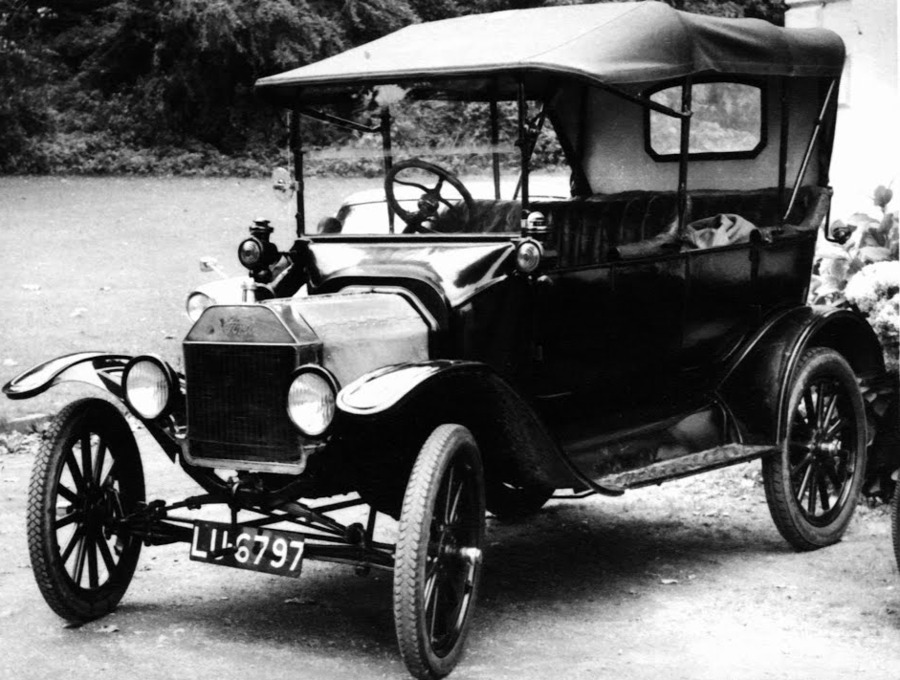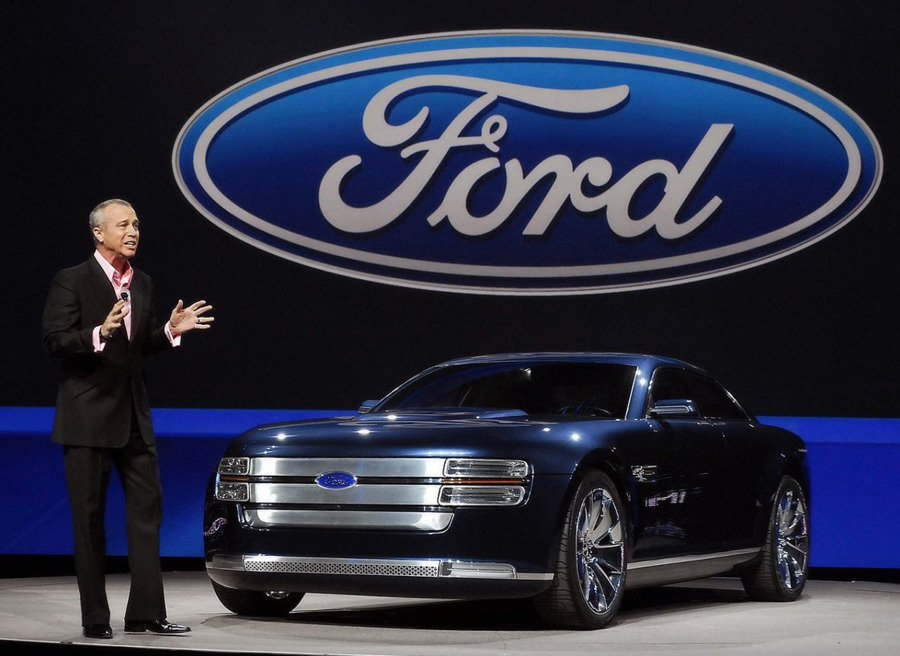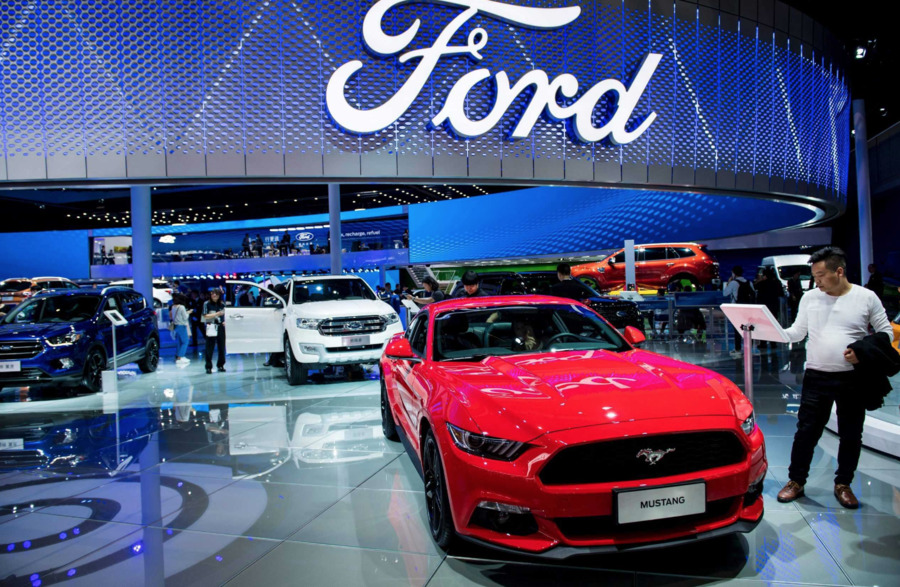Henry Ford: Pioneering Democratization in the Automobile Industry

April 26, 2024
A Vision for Every American: “An Automobile for Everyone”
Henry Ford’s monumental legacy in the automobile industry was significantly shaped by his guiding vision, “An automobile for everyone.” This motto was far more than a simple slogan; it was the bedrock of Ford’s business philosophy, reflecting his commitment to making cars affordable and accessible to the average American. This vision propelled Ford to innovate, fundamentally transforming the automobile from a luxury item into an essential part of modern life. His approach catalyzed widespread car ownership and altered societal mobility patterns, making personal transportation a norm rather than a privilege. Additionally, Ford’s vision resonates today in the car rental Dubai market, where his philosophy of accessibility continues to influence the availability of affordable car rental options, allowing a broader demographic to enjoy the convenience of personal transportation in Dubai.
The Quadricycle: Laying the Foundation for Modern Automobiles
Henry Ford’s journey into automotive manufacturing began in 1896 with the construction of the Quadricycle. Despite its rudimentary design, this early vehicle was a beacon of innovation. It featured a simple frame mounted on four bicycle wheels and was powered by a modest four-horsepower engine. The controls included a basic tiller for steering and a two-speed transmission without reverse. Although primitive, the Quadricycle broke new ground by showcasing the practical possibilities of gasoline-powered transport and laid the foundational concepts for more advanced automotive designs. Its creation was a critical step, illustrating the potential for personal transportation and setting the stage for the future of the industry.
The Birth and Rise of Ford Motor Company
Following a disappointing venture with the Detroit Automobile Company, Henry Ford founded the Ford Motor Company on June 16, 1903. This new enterprise quickly diverged from its predecessor, finding remarkable success where the former had found failure. Ford’s strategy centered around producing simple, reliable, and affordable cars—a formula that resonated well with the burgeoning market of potential car owners. The rapid development of Ford Motor Company was fueled by Ford’s clear vision and his unwavering commitment to innovation, both in product design and in streamlining manufacturing processes.
The Model T: A Catalyst for Mass Mobility
The launch of the Model T in 1908 marked a turning point in automotive history. It was robust, versatile, and, crucially, affordable. Initially priced at $850, the cost of the Model T was eventually brought down to under $300 thanks to Ford’s continuous improvements in production efficiency, particularly with the introduction of the moving assembly line. This strategic pricing made the Model T the quintessential vehicle for the masses and underscored its status as the most influential automobile of the 20th century. The Model T not only democratized automobile ownership but also became a symbol of American industrial innovation.

Revolutionizing Manufacturing: The Moving Assembly Line
In 1913, the introduction of the moving assembly line by Henry Ford revolutionized the manufacturing industry. This innovative production method involved moving the vehicle through a series of stations where specialized workers would perform specific tasks. This assembly technique significantly reduced the time required to build each car—from more than 12 hours to approximately 1.5 hours—dramatically lowering production costs and massively scaling production capacity. The moving assembly line did not just enhance the efficiency of car manufacturing; it also established a new industrial standard globally.
Economic Impact: The $5 Workday
In a landmark move in 1914, Ford introduced the $5 workday, effectively doubling the prevailing wage. This bold initiative was not merely a wage increase; it was a strategic investment in workforce stability and productivity. By doubling wages, Ford improved employee morale, dramatically reduced turnover, and cultivated a more skilled, loyal workforce. This, in turn, led to higher output and better-quality products, reinforcing the sustainability of Ford’s production model.
Advocating Workers’ Rights: The 40-Hour Work Week
Further demonstrating his progressive approach to business, Ford instituted the 40-hour work week in 1926. He reduced daily shifts to 8 hours and cut the work week to five days. These changes significantly enhanced workers’ quality of life and reflected a modern understanding of work-life balance. Ford’s policies set a precedent that would eventually become a standard labor practice across various industries, advocating for workers’ rights and well-being.

Ford Today: Sustaining Global Influence
Today, Ford Motor Company stands as a major player in the global automotive market, maintaining its position as the second-largest automaker in the U.S. and the fifth-largest worldwide. The enduring popularity of Ford is a testament to its continued innovation and adherence to the principles of quality, affordability, and accessibility set forth by Henry Ford. The current lineup of Ford vehicles boasts impressive safety features, including advanced braking systems, robust designs, economical engines, and high-quality factory paint jobs, ensuring that Ford remains competitive in a diverse and demanding global market.
Experience Ford’s Legacy
For those looking to experience the innovation and comfort of Ford’s vehicles firsthand, Al Mizan Car Rental in Dubai offers attractive options. The stylish 2019 Ford EcoSport Trend SUV, available for AED 510 per week or AED 80 per day, and the iconic Ford Mustang Eco Boost Twin, priced at AED 2,799 for a week or AED 425 for a day, provide an excellent opportunity to explore the quality and performance that Ford continues to offer.
Henry Ford’s vision and innovations have left an indelible mark on the automobile industry and modern society. His commitment to improving both the product and the production process has created a lasting legacy, demonstrating the transformative power of accessible technology and progressive labor practices.

Basketball fan, coffee addict, record lover, International Swiss style practitioner and ADC member. Working at the intersection of modernism and elegance to craft experiences that go beyond design. Currently living in New York City.





